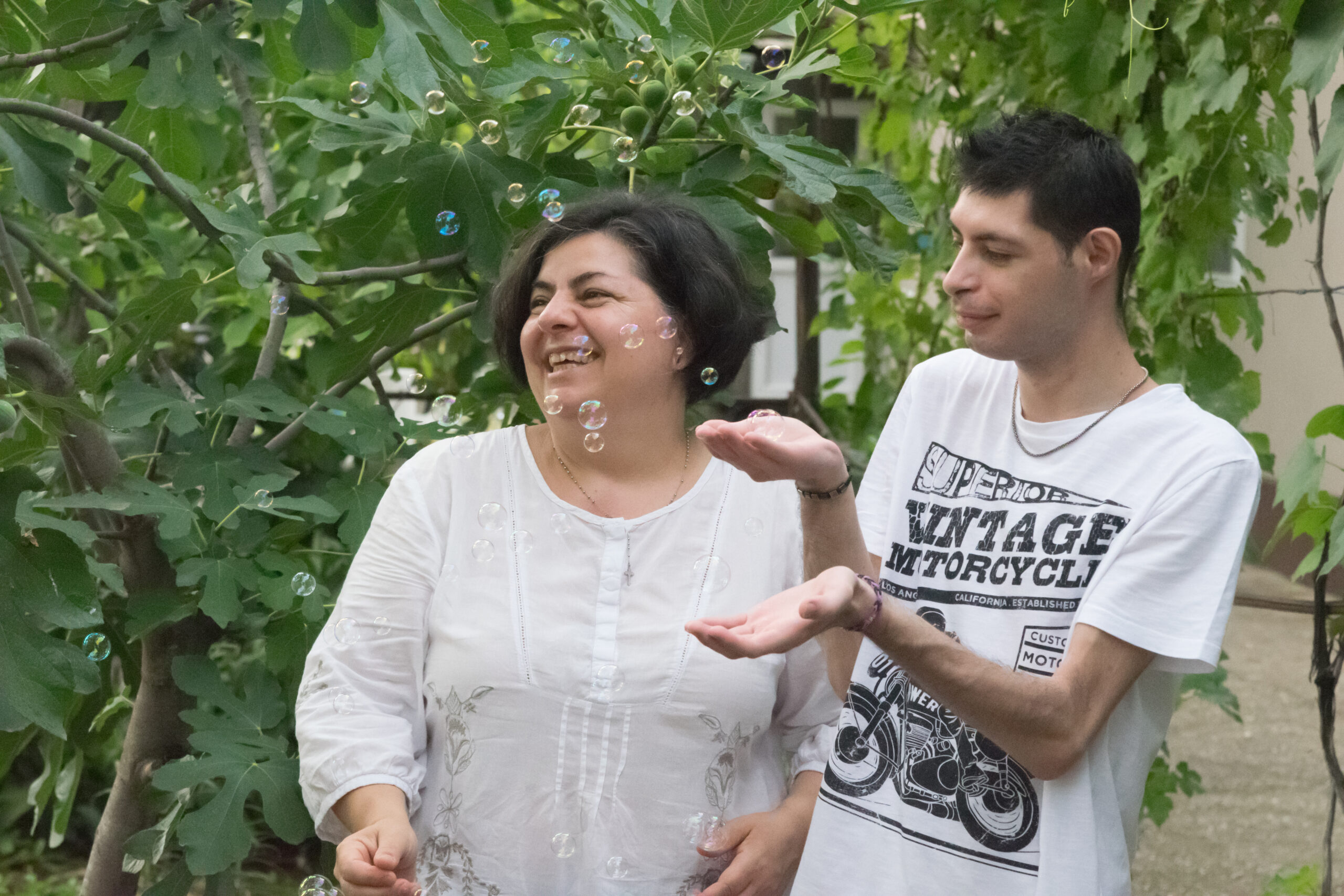Our work in Romania
When Sense International started work in Romania in 2001, there was no word for deafblindness in Romanian language. Since this time, we have ensured that deafblindness is understood, and that young people with deafblindness can live full, independent lives.
We have proudly launched “First steps” our guide designed to support parents of children with deafblindness and sensory disabilities. This is the first of its kind in Romania.
In Romania, an estimated 387,000 people live with a mild form of deafblindness and over 38,000 people live with a severe form of deafblindness.*
People with deafblindness in Romania experience marginalisation and isolation due to a lack of knowledge about this unique dual-sensory disability. Without trained interpreters and suitable support available, many people with deafblindness are unable to access information and services, leading to further social exclusion.
Our work in Romania initially focused on identifying infants with deafblindness through screening for sight and hearing impairments. Today, we ensure that children with sensory impairments have access to vital therapies and that their parents and care-givers are supported with counselling. We have also launched a new guide, First Steps, the first of its kind in the country to support families with deafblind children.
We ensure that teachers are trained in deafblindness and have the skills and resources to provide a quality education. We are transforming opportunities for students with deafblindness and their teachers across the country through technical innovation. Working with Code4Romania, we are developing an educational software which complements the curriculum and provides an accessible teaching resource for learners with multi-sensory impairment.
We are responding to the changing needs of young people with deafblindness as they approach adulthood. This includes supporting them to become more independent and to advocate for their rights. In recent years, we have also worked with schools and vocational training centres to ensure that young people with deafblindness are able to learn a trade and prepare for future employment.
 Youth participation, Romania
57 young people
Youth participation, Romania
57 young people
with deafblindness and multi-sensory impairments have participated in youth group advocacy through our programmes last year.
* Figures based on prevalence estimates produced as part of research by the World Federation of the Deafblind (WFDB). This data may differ from official government statistics. You can read more about deafblindness prevalence data here.
World Federation of the Deafblind (WFDB), 2018 At risk of exclusion from CRPD and SDGs implementation: Inequality and persons with deafblindness.

